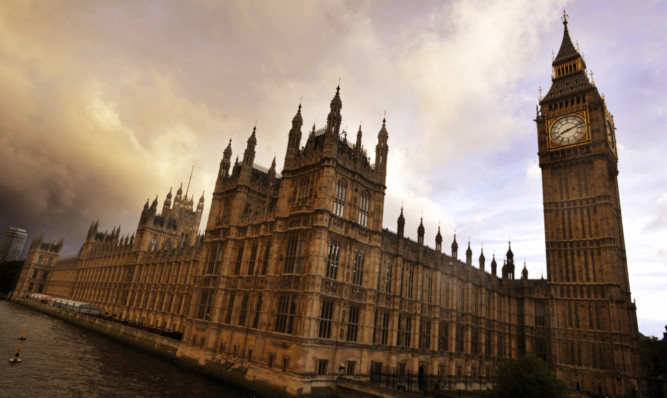Westminster politicians have been accused of living in “cloud cuckoo land” after demanding their salaries are hiked by a third to £86,000.
An anonymous survey for the Independent Parliamentary Standards Authority (Ipsa) also found 35% believe they deserve to keep gold-plated pensions.
Tory backbencher Andrew Bridgen insisted the “vast majority” of the public did not consider £65,000 a year “a lot of money” even though it is more than double the average wage.
The row erupted as Ipsa published a report on its initial consultation, which ended last month. Final decisions are due to be taken in the spring, with a new system not taking effect until after the 2015 general election.
According to the research by YouGov, 69% of MPs thought they were underpaid on £65,738. On average, Tories said their salary should be £96,740, while Lib Dems thought the right amount was £78,361 and Labour £77,322.
One MP insisted they should get £40,000 or less, but a fifth of those questioned said they deserved £95,000 or more. The overall average suggestion was £86,250.
The research found that 27% of the MPs wanted their pay to go up by more than 1% over the next two years, despite public sector rises and most working age benefits being controversially capped at that level.
Nearly two-thirds supported Ipsa’s decision to impose the same discipline.
The watchdog did bow to pressure by agreeing to reopen the subject of “golden goodbyes”, after 53% insisted members should be entitled to tens of thousands of pounds even if they step down from Parliament voluntarily.
The report said Ipsa was “not convinced” it was right to provide such pay-offs, pointing out that most employees did not get similar benefits, but it added: “It is clear that this is a complex issue. The problem, and possible solutions, deserve further examination.”
The watchdog again hinted it was not leaning towards linking MP salaries to that of other occupations that might have similar status, describing the idea as “problematic”.
Unison general secretary Dave Prentis said: “At a time when millions of workers are getting zero pay rises, the idea that MPs believe they deserve a 32% increase is living in cloud cuckoo land.
“MPs should get real about pay, this shows they are totally out of touch with working people. How can they think that they deserve a 32% increase when the rest of the country is being told to tighten their belts?
Matthew Sinclair, chief executive of the TaxPayers’ Alliance, said: “Hiking politicians’ wages at a time of pay freezes, benefit caps and necessary spending cuts would be completely unpalatable to taxpayers.
“To do so would suggest that there is one rule for MPs and another for the rest of the country. There is zero appetite for a pay rise for MPs as borne out by the polling of the public commissioned by Ipsa.”
